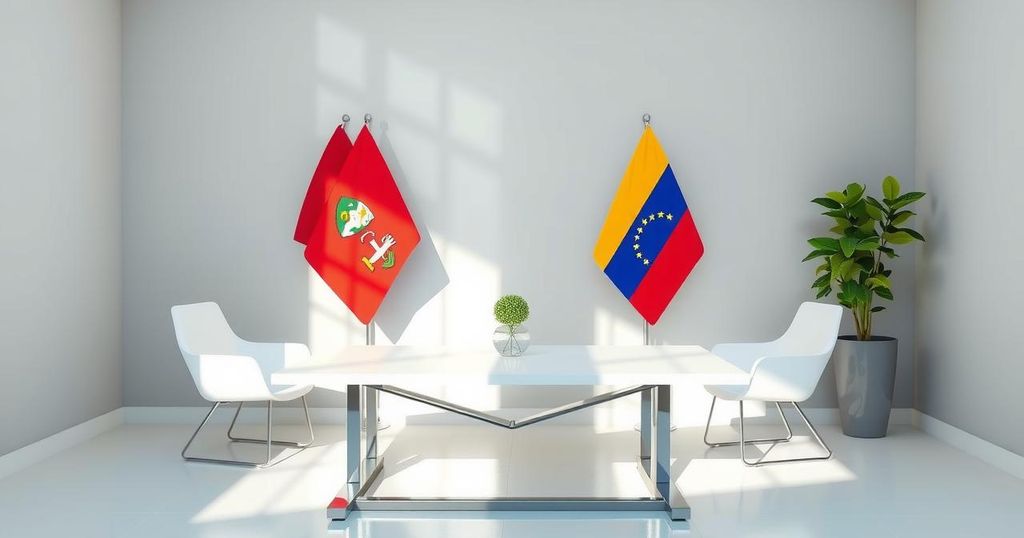St. Vincent Prime Minister Dr. Ralph Gonsalves is in Venezuela to discuss escalating tensions with President Maduro over a border dispute with Guyana. Recent incidents, including a Venezuelan naval incursion into Guyana’s waters, have exacerbated tensions. Gonsalves urges for diplomatic resolution to avoid conflict that could destabilize the region. The International Court of Justice’s rulings could impact future relations between Guyana and Venezuela.
The Government of St. Vincent and the Grenadines has announced that Prime Minister Dr. Ralph Gonsalves has traveled to Venezuela to engage in discussions with President Nicolas Maduro regarding the escalating tensions between Venezuela and Guyana over a border dispute. This meeting is set to take place after Dr. Gonsalves’ arrival in Venezuela last evening.
Prime Minister Gonsalves previously communicated with Guyana’s President Irfaan Ali, emphasizing the need for calm and restraint from both nations, advocating for diplomatic resolutions to prevent potential open conflict. He warned that escalating tensions could wreak havoc on both countries’ economies and social structures, destabilizing the broader Latin American and Caribbean regions, and leading to a possible humanitarian crisis.
Recent tensions surged following a Venezuelan naval vessel’s incursion into Guyana’s territorial waters, where it questioned oil ship crews about their activities and erroneously asserted that they were operating illegally. In response, Guyana mobilized maritime and aerial surveillance and reached out to the international community for support. President Ali characterized the incident as a serious provocation by the Maduro administration.
Many international entities, including the United States, the United Kingdom, CARICOM, The Commonwealth, and the Organization of American States (OAS), swiftly condemned Venezuela’s actions. Prime Minister Gonsalves affirmed that the oil vessels were lawfully within Guyana’s territory, but acknowledged that tensions might persist, regardless of the International Court of Justice’s ruling regarding the border dispute.
In December 2023, after discussions between Presidents Ali and Maduro, the Argyle Declaration was issued, committing both nations to refrain from threats or the use of force. The International Court of Justice also intervened, mandating that Venezuela must not alter the current situation in the contested Essequibo region, where Guyana exercises control.
Despite these judicial protections, Guyana has asserted that Venezuela has continued to ignore the Court’s order, maintaining its claims over Essequibo and conducting illegal military operations in Guyanese waters. In light of Venezuela’s actions, President Ali has declared he will not engage with President Maduro.
The tensions between Guyana and Venezuela over the border dispute have escalated due to a recent naval incursion by Venezuela. Prime Minister Gonsalves’ diplomatic efforts aim to mediate and de-escalate the situation, highlighting the consequences of potential conflict for both nations and the region. The international community is closely monitoring the developments, especially as the International Court of Justice’s ruling is awaited, which could influence future relations. Vigilance and diplomacy remain crucial in preventing further escalation of hostilities.
Original Source: newssourcegy.com




